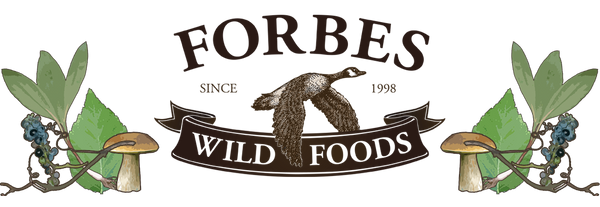Irish Moss
Irish Moss
As the common name for Chondrus Crispus suggests, this species of red algae is prevalent on Atlantic sea costs, being very common on Irish shores, but also those of North America. Forbes's Irish Moss is sustainably harvested and naturally dried in Nova Scotia. This small sea vegetable has thin branches that radiate out in a fan like manner. It presents in a range of colours that deepen and darken with the colder temperature waters in the North. Forbes stocks Irish Moss that is deep purple in colour.
Irish Moss is one of a number of seaweeds that contain the carbohydrate carrageenan, which acts as a powerful thickener when boiled with water. This property makes it useful for jelling custards, thickening broth, or making natural skin-care products. Before cooking with Irish Moss, soak it in a few rinses of water to ensure that any sand is washed away. To jell 3 cups of liquid, use one half-ounce of Irish Moss. Bring to a boil, and then simmer for 15 minutes before puréeing the mixture. To add body to clear soups, add a very sparing amount of rinsed Irish Moss, chopped finely.
Like all sea vegetables, Irish Moss differs nutritionally from plants growing on land. Sea vegetables have a higher content of minerals such as calcium, potassium and iodine. They are also rich in protein, amino acids, iron, vitamins and soluble and insoluble fiber.
Irish moss, also known as sea moss and carrageen moss, has a slightly stronger flavour than Gracilaria, another sea vegetable that is known as Sea Moss that has a more noodle like appearance.

